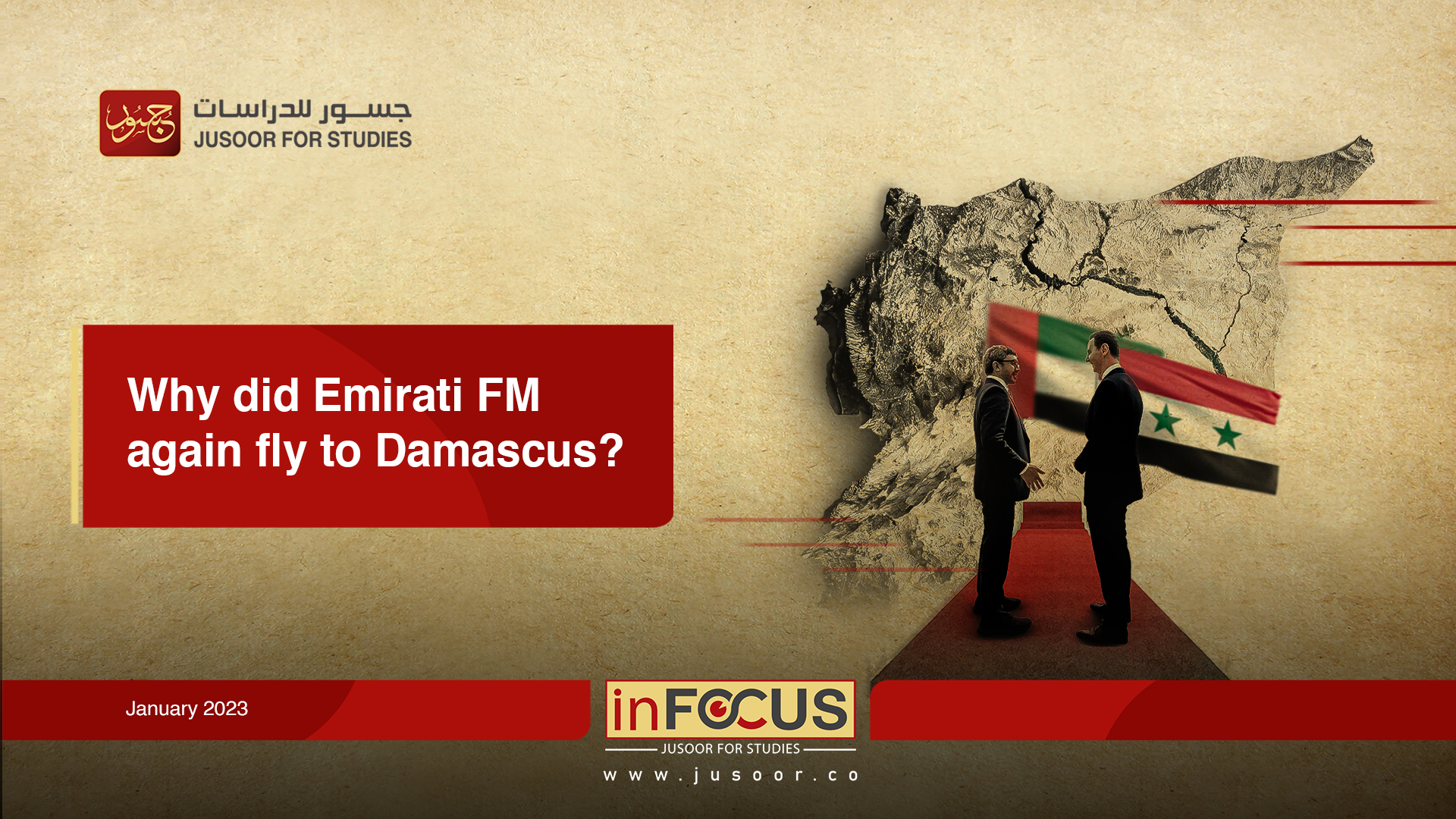Why did Emirati FM again fly to Damascus?
An Emirati delegation headed by the United Arab Emirates foreign minister, Abdullah bin Zayed Al Al Nahyan on January 4, 2023 made a visit to the Syrian capital, Damascus, and met the head of the Syrian regime, Bashar al -Assad. This visit is the second to Syria after the return of diplomatic relations between the two parties late 2018.
If we take a close look at the participating delegation, we could realize that it is a sign of thawing political and economic relations, despite no agreements or understandings were signed between the two parties. This may be either to officially avoid announcing any joint understandings in light of the tightening of US sanctions, or because the visit has more priority goals.
Since the normalization of relations with the regime, the UAE has been keen to establish a legal and political structure that enables the latter in the future to restore its investment role in Syria; where Abu Dhabi re -activated and formed the UAE -Syrian Business Fund at the end of 2021. However, it is noticed that the Emirati promises by pumping investments in Syria have not turned into facts yet. Declaring such plans was no more propaganda used by the two parties for media and political functions, let alone sending messages to the actors.
It is noted that the visit came just a week after military and intelligence chiefs of Türkiye and the Syrian regime met face-to-face in the Russian capital Moscow. It seems that this meeting encourages the UAE again to play the role of mediator in breaking the isolation of the regime by Arab states, in response to the Russian vision that it has repeatedly discussed with the Arab countries.
However, if Abu Dhabi hosted the first meeting between the foreign ministers of Türkiye, Russia and the regime, this will strengthen the Emirates position as a regional mediator capable of achieving specific breakthroughs. Furthermore, such a move would enhance its new position, away from the policies of using hard power and hostiles that branded its directions during the era of US President Donald Trump.








